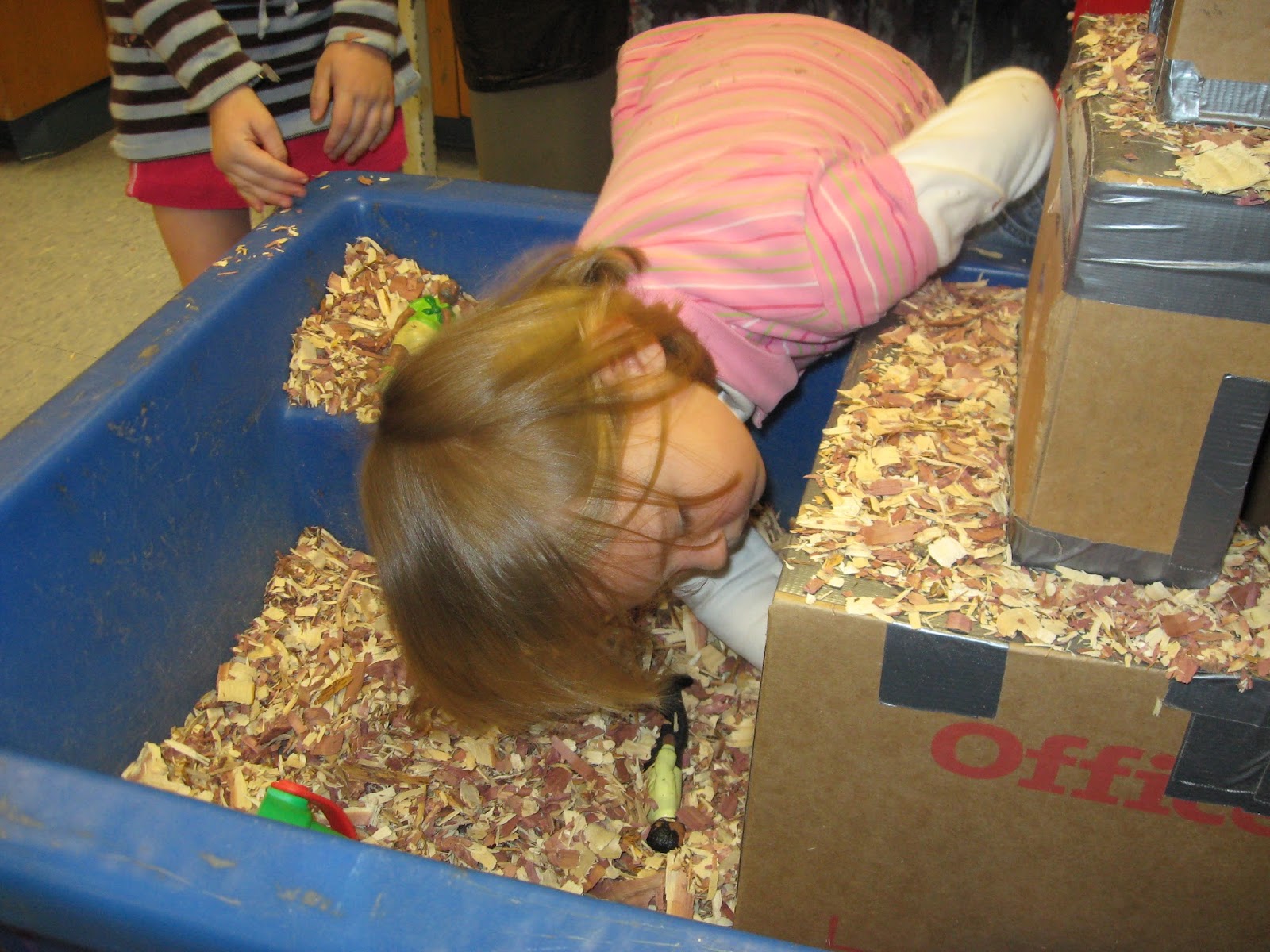When I finished building the Box Tower, I thought: What in the world are the children going to do with this thing? To me it looked pretty boring.
So what did the children do with the it? Well, they put sand in the holes that were higher on the apparatus and dug sand out of the holes on the bottom. They also put objects in the higher holes and retrieved them from the bottom holes.
Big whoop, right? Actually it was a big deal for the children. It was at this point that I began to see that holes were important to children. They were so important they fostered Axiom 5 in the right-hand column of the blog. Namely, children are compelled by their very nature to put things in holes.
So what is it about holes that compels children to put stuff in them---and take stuff out of them? I have two theories. The first one is that holes for children are magical. If you drop something down a hole, it disappears. (This type of magic is especially true for the younger children.)
If you dig in a hole, you are sure to find something.
Things disappearing and reappearing fits the definition of magic pretty well for young children. If that is not magic, then what is?
My second theory is that children animate the holes; through the the children's imagination the holes take on a life of their own. For the Box Tower, what that usually means is that the apparatus is a machine and by putting stuff in the holes, the children can make anything they want. The only limit is their imagination---which is not very limiting. I wanted to record some of their fabrications, so I put large sheets of paper on the wall next to the Box Tower to record what they said. Below is a picture of those recording sheets.
As you can see the list is quite imaginative. By putting sand in the holes of the Box Tower, they make everything from pancakes to dog food; chocolate pie to a berry pot. (At other times they made cement, popcorn, and even smoothies.) Not only that, they came up with many different ingredients---some real and some not so real---such as chocolate chips, milk, and "oint," a special kind of sugar. Oh, and don't forget the secret and special ingredients---which may fall under the rubric of more advanced magic.
From this example, you can see that children animate the holes the same way they animate any inanimate object. People, animals, and cars come alive in children's minds and hands. So do holes. As adults, most of us have lost that ability to animate the inanimate the way we did as children. The point is that children make the holes come alive because they can---and in ways only they understand. It is best to join them for the ride.
Do you have any theories about why children like to put things in---or take things out---of holes?






have you ever put something in one of the holes whothout the children knowing to discover it... something they have maybe never seen before and need to sork out what it is, or what its used for... or what to do with it,...
ReplyDeleteThis post reminded so much of schemas http://www.dorsetforyou.com/357248 - ( a brief outline in case you haven't come across it before)
thanks for sharing, love reading your posts as always...
I have never done that or even thought of it. Thanks for the idea and thanks for the Dorset link. I have never come across it before. Do all counties in the UK have similar websites?
Deleteyes, I believe most counties have their own educational websites, being in Sweden I cannot say for sure, but I do like checking some of them out, some of the Scottish ones are very good too, with lots of outdoor play ideas...
DeleteIn addition to the magic of holes (which are satisfied for me in the form of homemade marble games) I believe developmentally that's where young children are at. Think of peek-a-boo, hide and seek, flap books and you realize how kids are working out the thrill/fear of separation from caregivers, loss and where their bodies are in relation to their surroundings.
ReplyDeleteEileen
I am imagining that in your homemade marble games, the children put the marble down holes and they disappear and then reappear at the other end. That is an interesting point about the children dealing with things disappearing and reappearing as a developmental task. I agree with you there, but it seems to me that developmental tasks comes from an adult perspective. When I talked about the operations being magic and children animating the holes, I was trying to imagine what the children were experiencing. I do not really know what they are experiencing; it was just a supposition that is open for dialogue. Thanks for engaging.
Delete